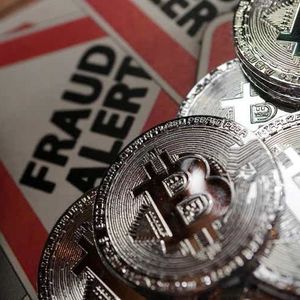Seeking Alpha
 2022-11-19 00:00:23
2022-11-19 00:00:23
Summary FTX implosion revealing leverage and lack of controls in the industry. Interconnected nature created by derivatives and shared holdings continuing to ripple and pressure industry players. Contagion doesn't seem like it's over. Begs question whether or not industry can ever rebound to where it was. Deplorable State of Crypto Anyone who follows the crypto world is familiar with FTX (FTT-USD), its former boss Sam Bankman-Fried, and the demise of his "empire". What a lot of crypto-faithful might not be aware of are the knock on effects of FTX's implosion and that of its affiliated investment fund, Alameda Research. Having lived through markets during both the Enron bankruptcy and global financial crisis, I see many similarities to then and now: excessive leverage that was poorly disclosed or not disclosed at all, interrelated entities of questionable utility and ownership, widespread conflicts of interest, and complete lack of reasonable oversight. Those traits resulted in disaster in the past and I suspect now will be no different. The expression, "There's never just one cockroach" was apt then and appears apt to describe events subsequent to the FTX meltdown. I expect to see many more crypto-related bankruptcies in fairly short order and more weakness in most cryptocurrencies. The Lenders I think one of the biggest surprises to come out of the FTX debacle is the amount of leverage that was employed. Sam Bankman-Fried has been tweeting aggressively (and probably to great self-hazard) since the bankruptcy and made a stunning confession this week. In a Twitter thread from November 16, he declared that leverage at FTX stood at $5 billion and was supported by $20 billion in assets. We can argue the $20 billion asset value part given the price declines in crypto assets but the $5 billion should have been pretty unquestionable. Somehow it wasn't. Later that same day he tweeted, “I was wrong. Leverage wasn’t ~$5b, it was ~$13b. $13b leverage, total run on the bank, total collapse in asset value, all at once. Which is why you don't want that leverage.” Uh, really, Sam? You didn't know that you had $13 billion instead of $5 billion? $8 billion of debt just magically appeared? It's hard to think of any CEO (or anyone for that matter), who could be that clueless. I am of the opinion that Bankman-Fried is likely more aware than that. However, his organization was clearly a mess. John Ray III, who replaced SBF, wrote a scathing letter about the state of the firm in which he crushed former management, saying: "Never in my career have I seen such a complete failure of corporate controls." and "From compromised systems integrity and faulty regulatory oversight abroad, to the concentration of control in the hands of a very small group of inexperienced, unsophisticated and potentially compromised individuals, this situation is unprecedented." In case anyone wants to question Ray's credentials, he led the Enron bankruptcy restructuring. More and more details keep emerging as Ray's picks through the mess he stepped into and none of them are constructive. As was the case in both Enron and the global financial crisis, there are knock on effects from such a large player going down with so much leverage in a world where derivatives create labyrinthine interconnections. The effects in this case are starting to take down other players. Crypto lender BlockFi is rumored to be planning a bankruptcy. FTX provided BlockFi with a $400 million credit line and BlockFi in turn lent money to Alameda Research, SBF's hedge fund, which also received funds from FTX. Genesis Global Capital, the lending arm of Genesis Global Trading, which like Grayscale ( GBTC ) is owned by Digital Currrency Group is pausing new loans and redemptions. This suspension is apparently affecting accounts at Gemini, the crypto exchange owned by the Winklevoss twins . Gemini had a program called "Gemini Earn", where customers could earn high interest rates on the digital currency assets. The company tweeted, "We are aware that Genesis Global Capital, LLC (Genesis) — the lending partner of the Earn program — has paused withdrawals and will not be able to meet customer redemptions within the service-level agreement of 5 business days." Questions are now emerging surrounding about deposit volume at Silvergate Capital ( SI ), whose stock has fallen dramatically this week. SI had no loans out to FTX or Alameda, only deposits. Still, it does make loans collateralized by Bitcoin ( BTC-USD ), which could become a problem. Coinbase ( COIN ) is falling too, less for concerns around exposure to margin lending and more to declining value of trading volume thanks to declining crypto values. Possible Implications I published a write up on Microstrategy ( MSTR ) earlier this week. MSTR is another massively leveraged player in the crypto space albeit simpler than FTX, BlockFi, Genesis or Gemini. It simply owns 130,000 Bitcoin that is underwater versus the leverage it used to purchase it all. Despite this in my opinion reckless speculation on Bitcoin, plenty of Michael Saylor defenders commented on that article. Most of the defense centers around belief in a potential recovery in the price of Bitcoin. Reasons stated for why it will recover are flimsy at best. That leads me back to my central view on cryptocurrencies. Given the price declines that just about every cryptocurrency had experienced this year, I think it's safe to say that cryptocurrencies are not : a store of value. What store of value drops 75-99%? a replacement for fiat currencies. The volatility is too high to be legal tender. an inflation hedge. They were tested this year and failed. If cryptocurrencies are not any of the above, what are they? Judging by the hanky panky (putting it lightly) that occurred at places like FTX, cryptocurrencies are just examples (if perhaps the most egregious) of the rampant speculation caused by super loose monetary and fiscal policies. Such an environment bred an investment style where fundamental, intrinsic value of assets did not matter as much as momentum if at all. People bought things simply because they went up. Fear of missing out replaced risk of capital impairment. Crypto is the epitome of this risk-taking dynamic. Fed Governor Neel Kashkari tweeted today "The entire notion of crypto is nonsense. Not useful 4 payments. No inflation hedge. No scarcity. No taxing authority. Just a tool of speculation & greater fools." Well said. With the end of easy money came the end of this type of speculation. Conclusion My two favorite quotes by Warren Buffett are: "Rule number one is don't lose money. Rule number two is don't forget rule number one." and "When the tide goes out, you see who is swimming naked." I think it's pretty clear that a lot of people like were skinny dipping and many crypto-faithful who hung on his every word forgot rule number one. Investing is hard. There can be a lot of pitfalls. One can lose money even in situations that look pretty safe. Speculation in highly volatile assets is just a bad idea, full stop. Employing leverage in it is a recipe for disaster for both the investor and potentially the lender (as we are seeing with FTX, BlockFi, etc.). I fully expect crypto true believers to disagree with this piece or claim I don't understand the asset class. My only response will be, please tell me the intrinsic value of this stuff.
Bitcoin (BTC) $98,166.97 -0.85%
{
Ethereum (ETH) $2,784.65 3.43%
Tether (USDT) $1.00 -0.01%
{
 Solana (SOL) 206.397826 1.04%
{
Solana (SOL) 206.397826 1.04%
{
Cardano (ADA) $0.76 0.96%
{
Chainlink (LINK) $20.04 0.47%
{
 Litecoin (LTC) $103.40 3.20%
{
Litecoin (LTC) $103.40 3.20%
{
 Polygon (MATIC) 0.320815 1.84%
Polygon (MATIC) 0.320815 1.84% Helium (HNT) 3.361609 -0.42%
{
Helium (HNT) 3.361609 -0.42%
{
Dash (DASH) $26.00 5.85%
{
 X-CASH (XCASH) 2.0E-6 8.77%
{
X-CASH (XCASH) 2.0E-6 8.77%
{
Dogecoin (DOGE) $0.00 11.93%







